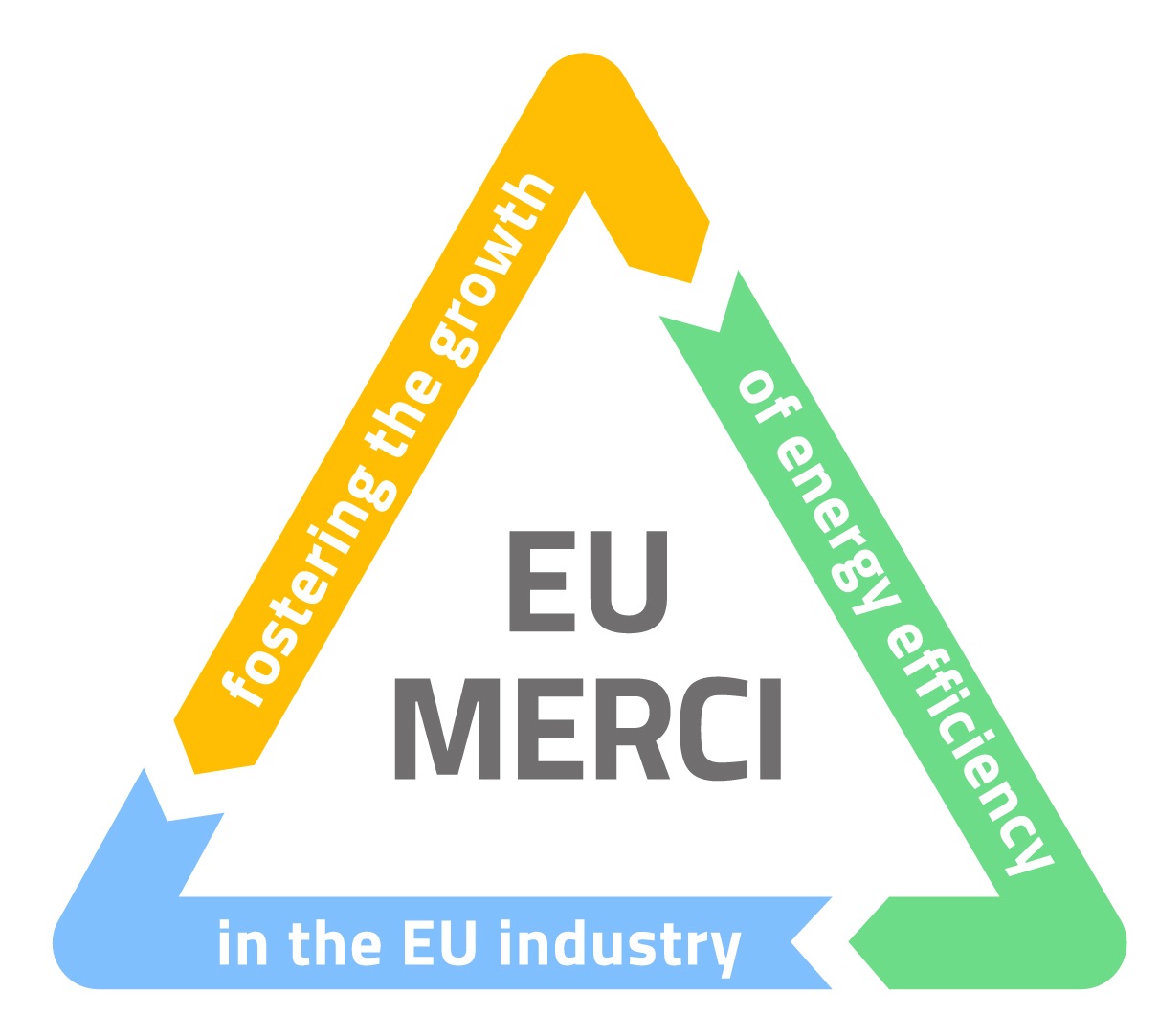The project will facilitate the implementation of energy efficiency projects in the industrial sectors by selecting and disseminating technological and policy best practices in the next two years
Rome, 19 February 2016 – the kick-off meeting of the EU-MERCI project, funded by Horizon 2020 program, took place in Milano. The two years project aims to create conditions to facilitate the implementation of energy efficiency projects in industry and facilitate the set up of more effective support schemes, taking into account the provision on “Energy efficiency obligation schemes” set by art. 7 of the EU 2012/27 Directive.
The project, led by RSE, will create a database of both technological and policy good practices, selected in several European countries, and will share them through a substantial program of capacity building and dissemination among industry and policy makers. In EU-MERCI there are a first group of partners (AEA, Carbon Trust, KAPE, RSE) owning data and information on implemented Energy Efficiency projects; a second group (APE, BSERC, CRES, ENERO) exploiting the selected case studies to facilitate the extensive implementation of EE enhancements; the set up of new schemes and new industrial efficiency measures in their own countries and a third one spreading on a larger scale the project results (FIRE, JIN, SPES).
Best applicable technological practices and policies will be selected, normalized and indexed, and put at disposal in a web based database that will allow stakeholders to obtain the information of interest. Another important aspect is the validation of the selected experiences by external stakeholders, in order to ensure repeatability and effectiveness and to maximize the impact of the project. Through SPES, which aggregates the food industry associations in Europe, it will also be possible to involve a wider number of Member States, developing a model to transfer good practices that can later be extended to other areas of the industry sector.
Giorgio Franchioni, in charge for RSE of international cooperation initiatives and EU-MERCI coordinator, emphasized the importance of the project for the industrial sector and in particular for small and medium-sized enterprises. “SMEs are the backbone of the European economy, accounting for 30% of the energy savings potential. They are also an important engine for innovation. EU-MERCI proposes to offer them, and to the industrial sector in general, an effective support for the improvement of the efficiency of their production processes, further simplifying access to the available incentives provided for in the various Member States. EU-MERCI also aims to support the action of the European and national decision makers to create new effective energy efficiency supporting schemes and to improve existing ones, in order to make them more effective, transparent and responsive to the real needs of the industrial end-users and to the EU energy targets”.
Dario Di Santo, director of FIRE and head of the work package on communication and dissemination, stressed the importance of the Project : “There is no shortage of good policy and technology practices in Europe, which indeed is a world leader in many ways, but so far we lack a comprehensive collection of successful examples. This means that often business or political decision-makers tend to start from scratch, rather than exploiting what already exists at EU level. The ambition of the project is to fill this gap, promoting the dissemination of energy efficiency, the competitiveness of enterprises and the environmental and social benefits accompanying these measures.“
The project partners are: Ricerca sul Sistema Energetico, Italia (RSE); JIN Climate and Sustainability, Paesi Bassi (JIN); Center for Renewable Energy Sources and Saving, Grecia (CRES); Agenzia nazionale per la conservazione dell’energia, Polonia (KAPE); Agenzia austriaca per l’energia, Austria (AEA); Federazione italiana per l’uso razionale dell’energia, Italia (FIRE); Carbon Trust, Gran Bretagna (Carbon Trust); Black Sea Energy Research Centre, Bulgaria (BSERC); Energy Restructuring Agency, Slovenia (ApE); Spread European Safety SPES GEIE (SPES); Centre for the Promotion of Clean and Efficient Energy in Romania, Romania (ENERO).
The project is also supported by numerous European governmental agencies and bodies, and industrial, environmental and consumers associations.
